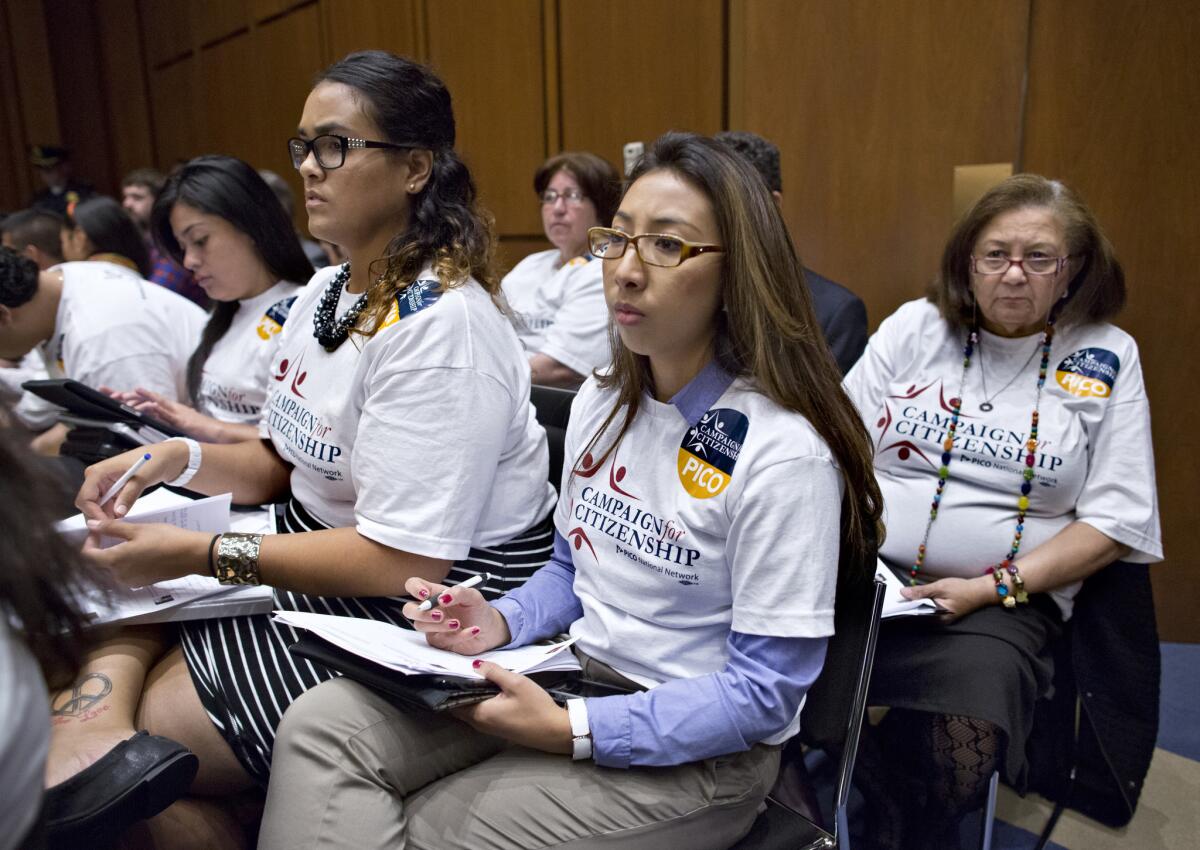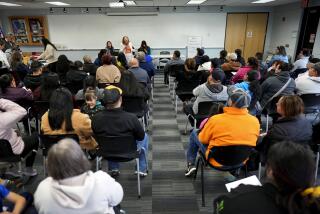Immigration and gang labels

The Senate Judiciary Committee is just beginning its markup of the bipartisan immigration bill, but already opponents and supporters of the sweeping legislation are fighting over which immigrants should be allowed to legalize their status and which should be deported.
Clearly it makes sense to refuse legal status to immigrants who have been convicted of serious crimes. But some lawmakers, including Sen. Charles E. Grassley (R-Iowa), are backing a provision that goes too far, excluding immigrants who have no criminal history simply because their names appear in a database of gang members or on a gang injunction.
Keeping immigrants from legalizing their status because of accusations, rather than convictions, is unjust. Gang databases and injunctions are useful but imperfect tools with a troubled history. Individuals can find themselves on those lists because of such factors as tattoos, style of dress or identification by an informant. Moreover, critics say individuals who may not be in a gang but have relatives or friends who are can end up in the databases. That’s guilt by association.
Those placed on such lists often face a near-impossible task when they try to remove their names. Just consider Orange County Dist. Atty. Tony Rackauckas’ appalling tactics in trying to secure an injunction against 115 alleged members of the Orange Varrio Cypress gang. Dozens of them went to court to challenge the designation. However, they never got a chance to present their case because prosecutors dropped their names from the list before a judge could rule. Shortly afterward, the same prosecutors went back to court and obtained an injunction against the gang as a whole — and eventually added the names of those who had gone to court to contest their inclusion. Nearly four years later, those individuals are still fighting in federal court to remove their names from the injunction.
Rather than repeating the mistakes of the past, Congress should use the opportunity before it to devise sensible and humane rules for normalizing the status of the estimated 11 million immigrants living in this country illegally.
More to Read
A cure for the common opinion
Get thought-provoking perspectives with our weekly newsletter.
You may occasionally receive promotional content from the Los Angeles Times.






